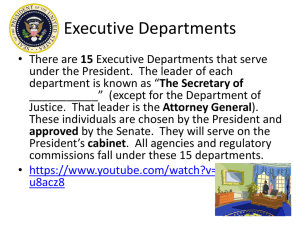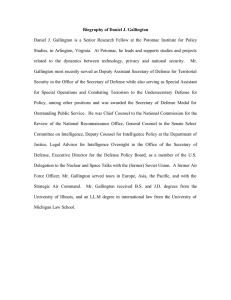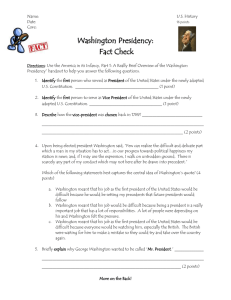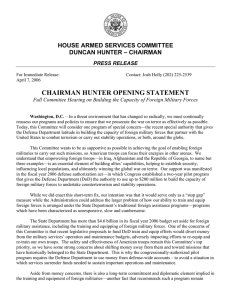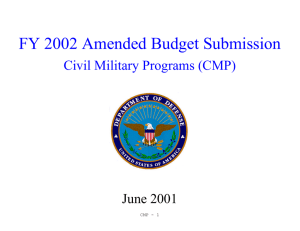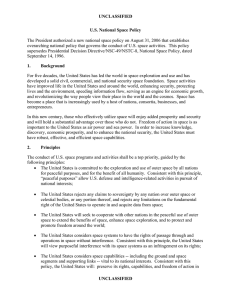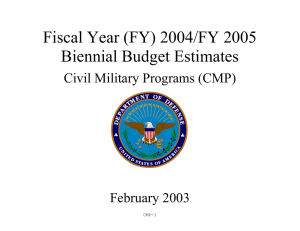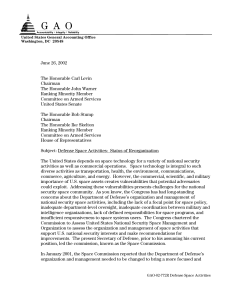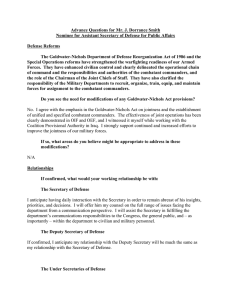JERRY LEWIS NEWS 41st District, California
advertisement
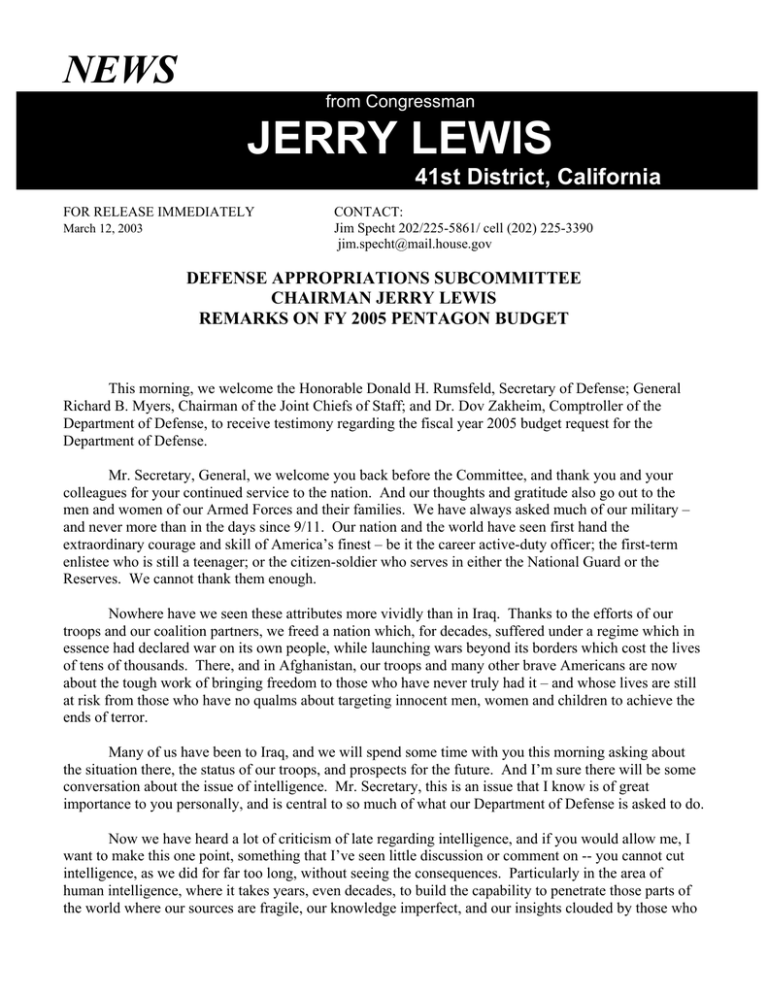
NEWS from Congressman JERRY LEWIS 41st District, California FOR RELEASE IMMEDIATELY March 12, 2003 CONTACT: Jim Specht 202/225-5861/ cell (202) 225-3390 jim.specht@mail.house.gov DEFENSE APPROPRIATIONS SUBCOMMITTEE CHAIRMAN JERRY LEWIS REMARKS ON FY 2005 PENTAGON BUDGET This morning, we welcome the Honorable Donald H. Rumsfeld, Secretary of Defense; General Richard B. Myers, Chairman of the Joint Chiefs of Staff; and Dr. Dov Zakheim, Comptroller of the Department of Defense, to receive testimony regarding the fiscal year 2005 budget request for the Department of Defense. Mr. Secretary, General, we welcome you back before the Committee, and thank you and your colleagues for your continued service to the nation. And our thoughts and gratitude also go out to the men and women of our Armed Forces and their families. We have always asked much of our military – and never more than in the days since 9/11. Our nation and the world have seen first hand the extraordinary courage and skill of America’s finest – be it the career active-duty officer; the first-term enlistee who is still a teenager; or the citizen-soldier who serves in either the National Guard or the Reserves. We cannot thank them enough. Nowhere have we seen these attributes more vividly than in Iraq. Thanks to the efforts of our troops and our coalition partners, we freed a nation which, for decades, suffered under a regime which in essence had declared war on its own people, while launching wars beyond its borders which cost the lives of tens of thousands. There, and in Afghanistan, our troops and many other brave Americans are now about the tough work of bringing freedom to those who have never truly had it – and whose lives are still at risk from those who have no qualms about targeting innocent men, women and children to achieve the ends of terror. Many of us have been to Iraq, and we will spend some time with you this morning asking about the situation there, the status of our troops, and prospects for the future. And I’m sure there will be some conversation about the issue of intelligence. Mr. Secretary, this is an issue that I know is of great importance to you personally, and is central to so much of what our Department of Defense is asked to do. Now we have heard a lot of criticism of late regarding intelligence, and if you would allow me, I want to make this one point, something that I’ve seen little discussion or comment on -- you cannot cut intelligence, as we did for far too long, without seeing the consequences. Particularly in the area of human intelligence, where it takes years, even decades, to build the capability to penetrate those parts of the world where our sources are fragile, our knowledge imperfect, and our insights clouded by those who practice repression and deceit. Yet cut we did, even more than we cut the defense budget, for more than a decade -- until those budgets began to turn around in the past few years. There is an important lesson here. Mr. Secretary, one of your predecessors – who, like you, served as Defense Secretary at a time of war -- often told this Committee that he was ever mindful he had inherited a legacy, an American military built by the decisions of those who proceeded him. Decisions on policies, programs and budgets, the results of which often took years to unfold in the real world that our forces operate in. And when he presented his budgets to this Committee, he asked the Congress, as full partners in this effort, to remember that our decisions would build a similar legacy for his successors and ours -- a legacy which ultimately would outlast all of us, and form the foundation for future leaders as they tried to provide for the security of the American people. Mr. Secretary, those words were spoken by Dick Cheney, our Vice President, who clearly understood that “our actions have consequences”. So, today, as we remained focused on our troops on the front lines, be it in Iraq or elsewhere, we cannot lose sight of the fact that the fiscal year 2005 budget that this Committee must ultimately approve should not only support those who serve today, but help us move forward, step-by-step, towards transforming that force in order to meet the demands of the future. Your budget reflects that in many ways. It continues to improve our soldiers’ quality of life, supports high levels of training and readiness, funds record-high levels for research and development and many transformational technologies. And in each of the branches we see the military leadership working to configure their Services in ways which will provide our field commanders with more assets, more quickly, when called by the nation to respond. Doing this is not easy, and it is not inexpensive. And there are those who question the growth in your budget at a time the President has proposed restraint elsewhere. I would remind those who hold that view that we are now a democracy at war, a different type of war in a rapidly changing world. And with this budget we see the President’s commitment to support you and the Department as we work to reshape our military for the decades ahead, while pursuing a global war on terrorism whose end we cannot predict. This is an important discussion, one that we will not settle today, Mr. Secretary. But I look forward to your comments today on how the Department is preparing for this uncertain future, and to continue these discussions with you in the weeks ahead. ###
